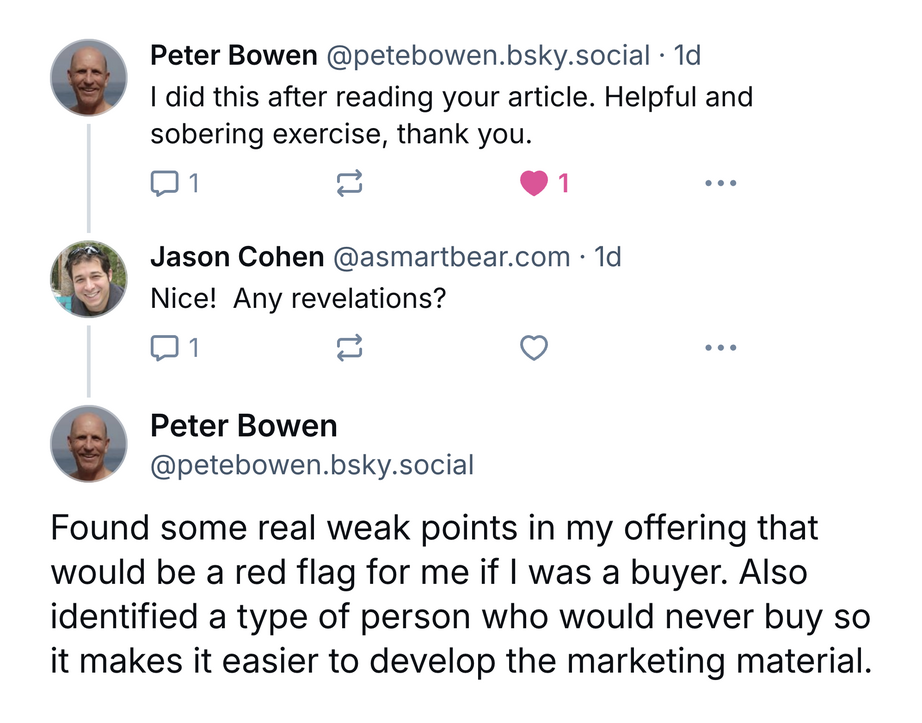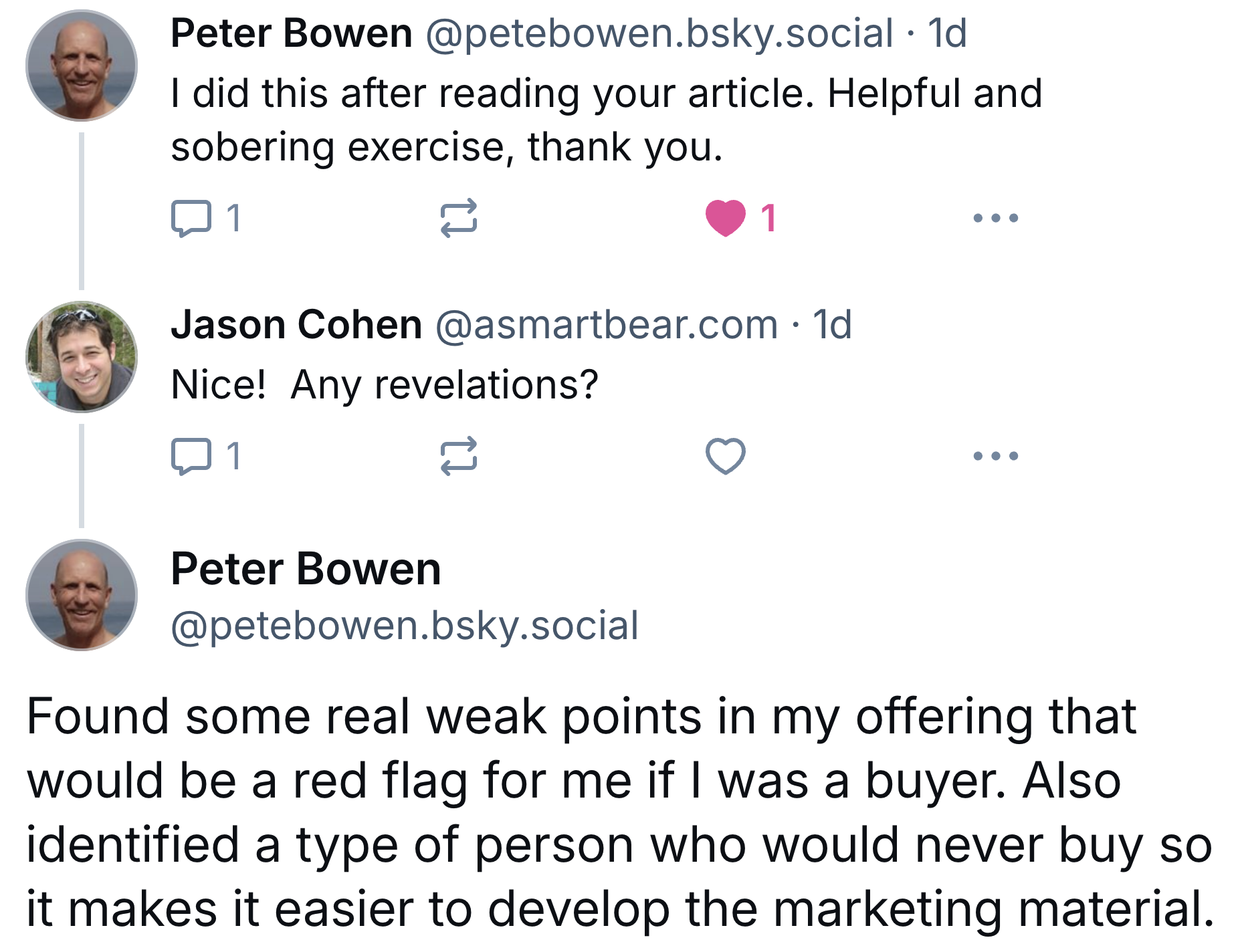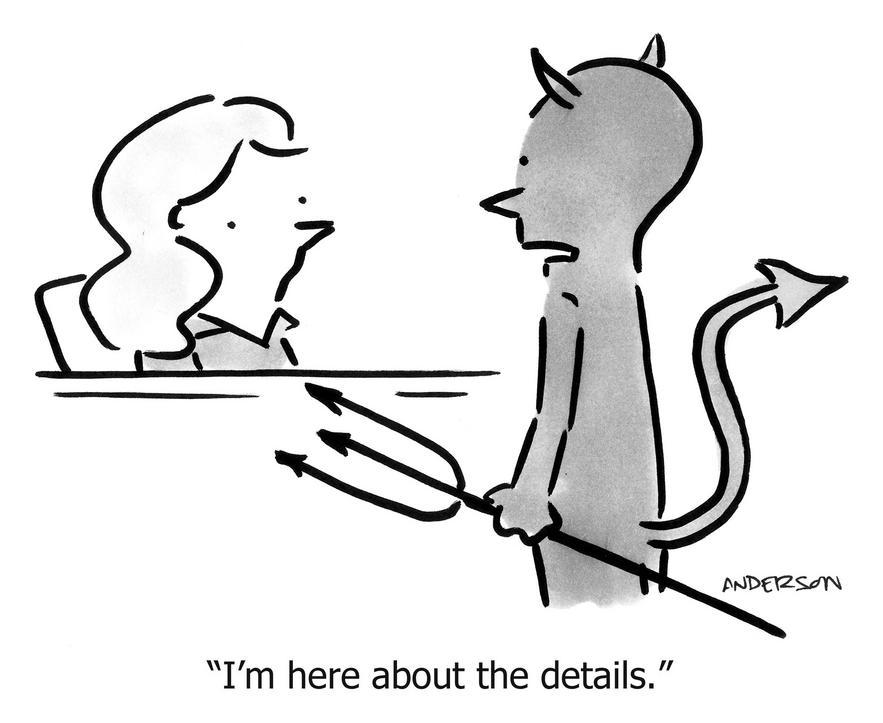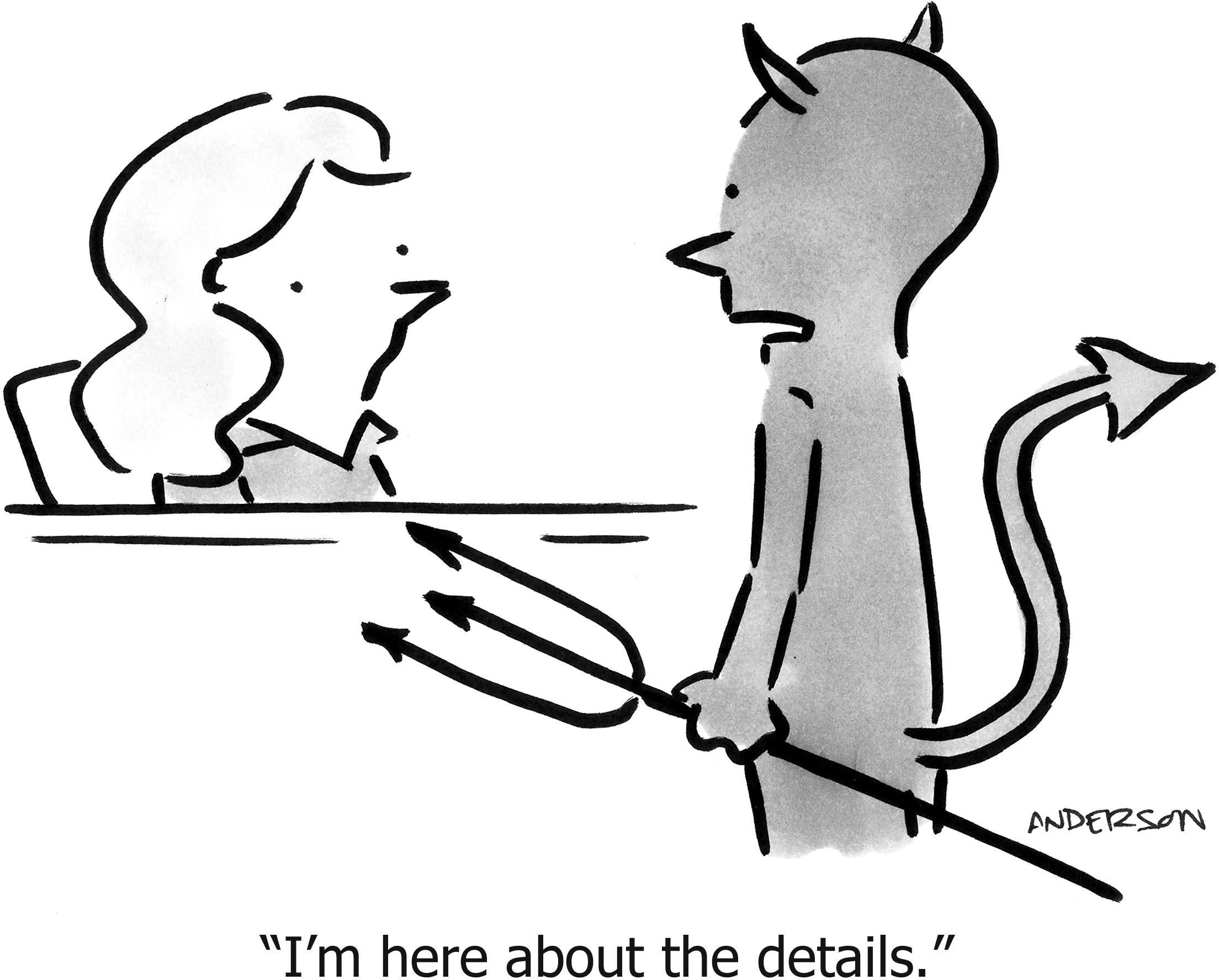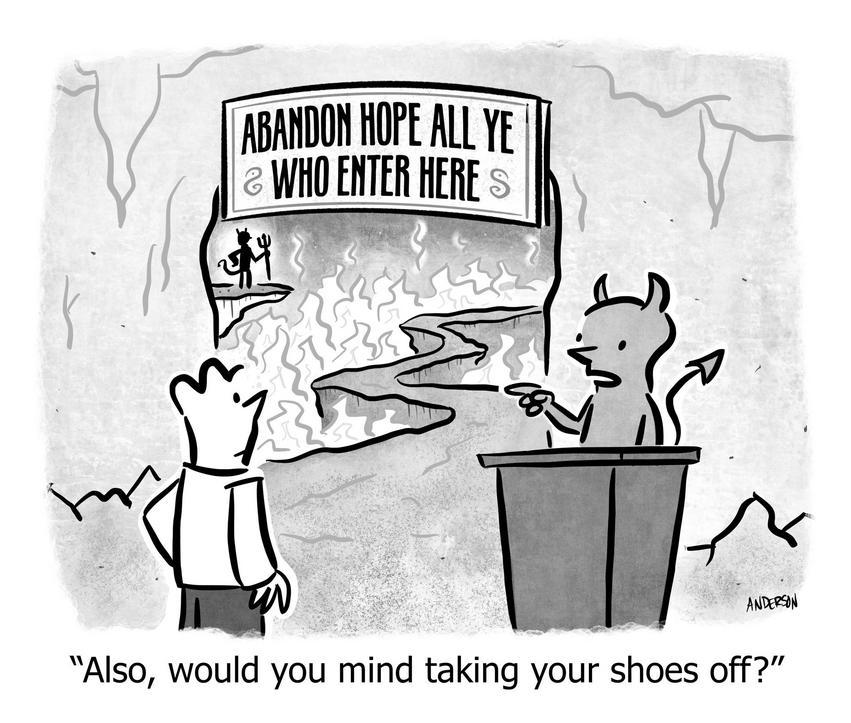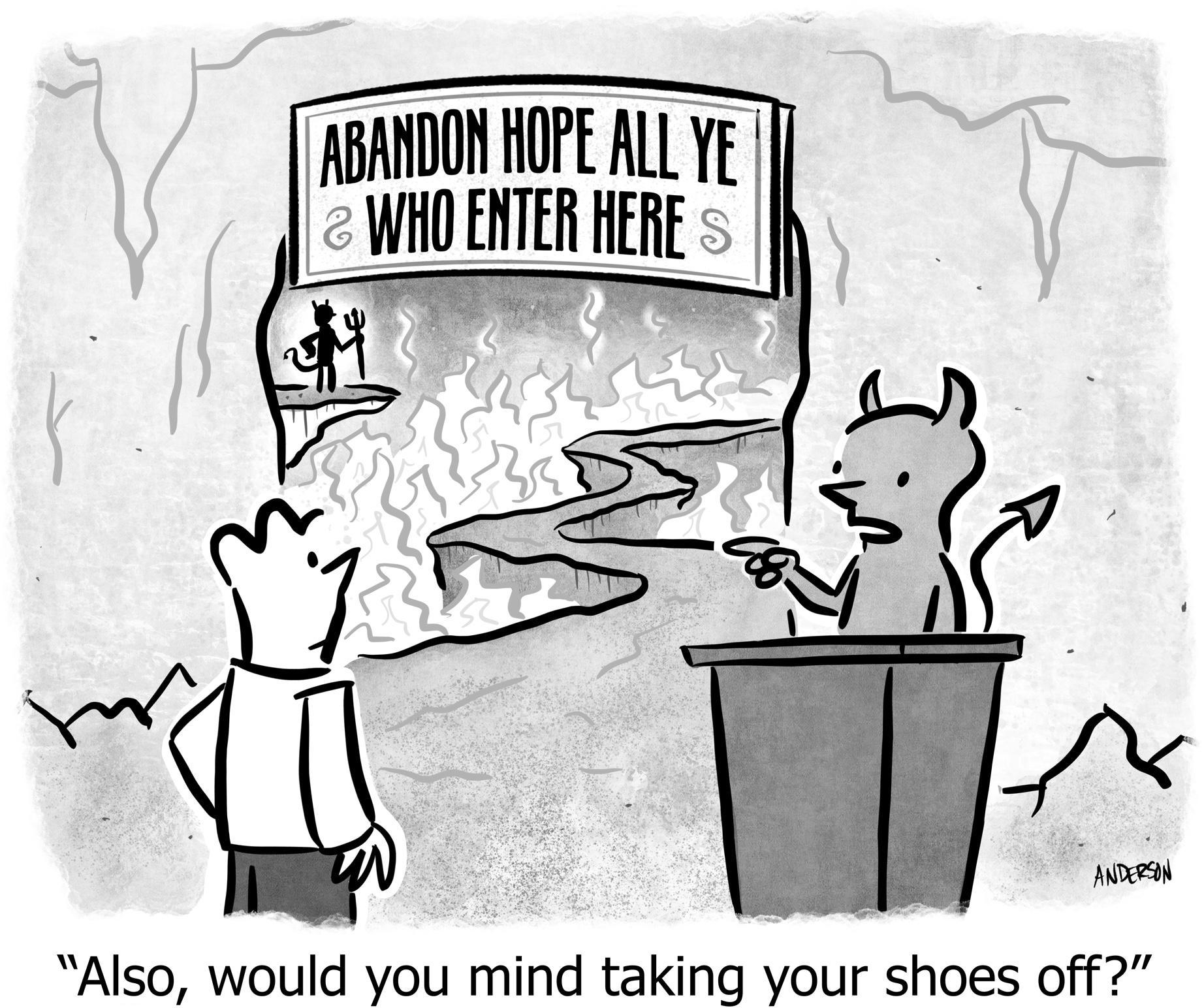Rude Q&A: The constructive devil’s advocate
Nothing clarifies things quite like a hyperactive, all-knowing, all-seeing, real asshole of a devil’s advocate beating the living crap out of you.
Baseball players swing heavy bats before going up to the plate; acclimating to difficult working conditions makes it easier to hit the ball out of the park.
What’s the equivalent of heavy-bat-swinging for honing your skills at pitching your product and raising money for your company?
For years I’ve been a fan of Scott Berkun’s concept of Rude Q&A:
What would the meanest, nastiest, but smartest people in the world grill you on when you show your work?
A “Rude Q&A” is a list of questions [about your work that] you don’t want to hear.
When you’re contemplating an exciting new idea, you don’t want to hear questions that might contradict your concept.
And of course, that’s exactly when you need the biggest, baddest, smartest, devil’s advocate to challenge all your assumptions.
It’s not just about testing the mettle of your ideas, it also forces you to refine and clarify your marketing messages, your target customer profile, and your feature set. When you’re being grilled there’s no room for being generic about how you’re different from the competition and where you are strongest, no leniency for not knowing exactly what customer pain you solve and why they should love you, and no clemency for wavering on your company values and what compromises you’re (not) willing to make.
Scott goes on to explain just how unfair the questions need to be:
Make sure to include questions that are unfair or based on erroneous information. Reporters, clients, and the public all have their share of unfair questions and erroneous information, and you want to be ready for them.
These answers take more time as the responses need to be more polite and mature than the questions. They also need to carefully refute assumptions in the questions without being dismissive.
I love it; now we’re deep into “heavy bat” territory.
So how do you go about writing your Rude Q&A? The hardest part can be coming up with the questions.
To get you started, I’ve assembled a laundry list of questions common to many startups:
- Your biggest competitor just dropped their price to $0. How do you continue to justify your price point?
- If your idea is any good, you’ll soon have competition and even copycats from multiple players, both incumbents and new startups, both funded and bootstrapped, both smart and stupid, both large and small. How will you persevere?
- If the economy stays bad for two more years, how will you survive?
- The last thing anyone needs is another damn tool. What’s the overwhelming reason I should even bother looking at you?
- Competitor ______ is doing better than you. What are you going to do about it?
- Technorati reports one million new blog posts appear every day. Why should I read yours?
- If you raised prices 50%, would any customers stay? How are you going to 10x the quantity of those kinds of customers?
- What are the top three features your competitor has that you lack? How do you address that today, and what are you doing about it in the next six months?
- How can you call yourself an expert when you’ve only been at this for a year?
- There’s only two of you. What happens if someone leaves? The company is finished?
- What’s the single most important thing you need to accomplish in the next 12 months, and how are you going to get it done? (Do you even know what it is?)
- Your company is going to top out of growth soon because of your high cancellation. How are you going to fix the fact that so many people decide they don’t like you, even after buying from you?
- What are three tangible, undeniable ways in which your product/company saves more money than you cost and saves more time than you consume?
- Truly great products and companies are rare, even when smart people are at the helm. What makes you think you have what it takes?
- There are thousands of consultants who make the same claims you make: high-quality, on-time, on-budget, good service, happy customers. What makes you any different?
These are generic; you’ll need to come up with more specific attacks. For example, if I were defending this blog and answering the question about why anyone should read it, I would make the question more specific:
There are already too many blogs about startups, especially high-tech startups. Those blogs are far more popular than yours, their authors far more famous, and their advice is excellent. Smart Bear is a success but it’s nothing like the success earned by someone like Steve Blank. Why should anyone listen to you?
And here’s my answer:1
I read those blogs; they’re great!
There’s two reasons why this one should exist:
For every Jason Fried who says “simple design is better than complex features,” someone else needs to point out that they’ve (I’ve!) made millions with poor graphic design and too many features. For every Seth Godin who says a tribe of 1,000 followers is all you need, someone else needs to point out that it’s not actually true in practice. When every piece of advice has a counter-argument, you realize that your goal is to find advice that matches your context, your goals, your personality, your constraints, your strengths, and that means we need blogs like this one, sourced from my own combination of those things, for the benefit of those for whom my specific attitude and experiences make them a better version of who they already are.
Think about the best teacher or mentor you ever had, someone whose words have rung in your head forever after, or someone who changed your life, even if by accident. Did that person invent the subject they taught? Even 1% of it? No. Having a genuine life-changing impact on someone isn’t related to who invented the idea. It’s nice to come up with new ideas—I am proud of mine and happy when they are repeated—but it is the exposition, the turn of phrase, the accidental time-and-place where someone heard it for the seventh time but this time they were prepared for it to sink deep into their psyche, and you were there, doing it in a way they were happy to accept. This is truly having positive impact on others, “changing the world” for the better, one person at a time. I have received thousands of messages over the years, saying that something I wrote changed them, or was “what I really needed to hear today.” More even than a “good use of time,” it might be the definition of life’s purpose.
1 Editor’s Note in 2025: This was written in 2010, just before I founded WP Engine. That company would go on to be a hyper-growth unicorn, which certainly answers this objection. Still, it’s more instructive to see how I answered it before I earned that additional credibility.
Don’t get discouraged if you’re not happy with all your answers. That’s a good sign—it means you’re being honest about the exercise and you’re not yet satisfied. Keep it in the back of your mind and look for answers while you forge ahead. Discuss the hard ones with other people to generate better ideas.
This is all just another way of being introspective.
https://longform.asmartbear.com/devils-advocate/
© 2007-2026 Jason Cohen
 @asmartbear
@asmartbear ePub (Kindle)
ePub (Kindle)
 Printable PDF
Printable PDF
